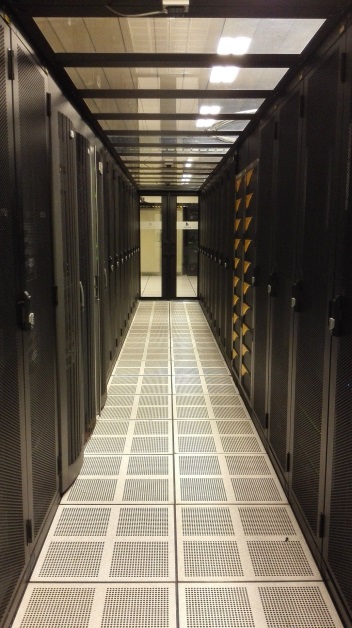Cloud services and hosting on-site offers different advantages and depending on what you choose may have an impact your day-to-day operations. As a business, you will have to decide between the relative merits of capital expenditure on servers and the operating expenses of outsourced cloud services such as cloud backup for business.
There are, broadly, three options you can consider:
- On-site, self-hosting
- Cloud hosting
- Multi-tenancy (where multiple users can pool resources and offset costs)
In this article we will consider hosting on-site and cloud hosting. There are relative merits of both, though it all comes down to: what does your business need? Do you require always-on infrastructure to facilitate transactions around the world; how many users do you have; what capability do you need for a mobile workforce?

According to Forbes, over 77% of business worldwide have at least one application in the cloud!
Hosting on-site
On-site hosting implies you own the company IT infrastructure and house it at your premises. It means you have complete control over the operation and maintenance of the servers. It also means you don’t share storage space or computing power with any other users.
Pros
- Physical control over your data and backups
- Confidential data is stored in-house (which may be a requirement for sensitive contracts)
- An internet connection is not necessary to access data on devices connected to the servers
- May be more cost effective over a longer period (for instance, over a 7-year period, which is the maximum server warranty available typically)
- Staff can access data quicker instead of waiting for it to be transferred from the server
Cons
- Capital investment in hardware and upgrades
- Dedicated company IT support services to secure and maintain servers
- Requires specially designed space to house in the office
- May be more susceptible to data loss and interruption (due to on-site events)
- No guarantees on uptime or how long recovery times will be
Cloud services and cloud backup for business
Cloud services are hosted over the internet on remote servers. Their strength lies in the powerful collaboration tools they enable. A business may also receive access to the latest technologies and services sooner, since the cost of implementing these is spread over thousands, if not millions, of users.
Security is one of the primary concerns when it comes to cloud services, though 70% of IT professionals trust the cloud for storing sensitive information.
Pros
- Pay for what you need (capability and capacity available on-demand)
- No need to maintain expensive infrastructure gives ability to scale rapidly
- Storage needs can be met as need arises without expensive company IT infrastructure
- Downtime is typically lower and less frequent as compared to on-site hosting
- Backups can be initiated remotely, even from smartphones and tablets
- Cloud backup for business is fundamentally more secure as it is physically separated
Cons
- Businesses that don’t require constant up-time may not enjoy the value
- Data recovery costs can outweigh the benefits of fast recovery
- Possible limitations on how much data can be stored in the cloud
- Interruptions in internet connectivity can disrupt the entire business
- Increased cost of maintaining multiple internet lines to ensure redundancy
- Expensive gigabit internet may be required depending on workload and workflow
- No control over maintenance and security of cloud server
There are pros and cons to hosting data on-site and cloud services. Which option is right for you depends heavily on your workflow and the kind of work you do. If your primary need is data accessibility on the road for sales staff, then cloud computing offers great solutions. You can benefit hugely from automatic data backups and real time dashboards that give a snapshot of the entire company.
However, if your work requires processing large amounts of data, storing sensitive and confidential information, on-site hosting may offer a more secure option.
Effective business IT solutions in Kitchener
At EMKAL, we help small and mid-size businesses in Kitchener find and implement data storage and computing strategies. Often, the right answer involves a balance between on-site hosting and cloud services. Call us today and schedule a free consultation with business IT solutions advisor.


